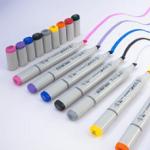How to remember a lot of information in a short time. How to quickly remember information
Content
The modern world with a huge amount of constantly updated information places increased demands on human memory. People striving to achieve success are faced with the question - how to remember a lot of information in a short time? The best minds of humanity have been “fighting” over this problem for a single year, and they have found a way out for such people. According to them, the use of special techniques can increase memory capacity.
How much information can a person remember?
Scientists have long been trying to find an answer to the question of how much information an ordinary person can remember. However, a solution that satisfies all physiologists has not yet been found. It was assumed that human memory is capable of storing information of ten million bits. But scientists soon abandoned this theory due to the fact that this volume is very small and does not reflect the real state. The human brain contains not only the data that he is forced to remember, but also those that accompany his existence - the names of pets, facial features of relatives, etc.
According to American researcher Cooper, each brain neuron is capable of storing up to one hundred thousand pieces of information. Taking into account their total number, human memory contains information with a volume of 10 to the 17th power of bits. This figure, according to a number of physiologists, is reliable. However, some scientists argue that human memory is a more capacious concept, and it is capable of containing information of 10 to 23 bits. Based on these data, it is clear that people have not yet learned to use the most complex mechanism given to them by nature.
Memory Type Determination
In everyday life, individual differences in the area of mental processes. One of these processes is information storage. Features of the memorization process characterize the personality, becoming its properties, leaving an imprint on the person’s activity and behavior. Depending on which analyzer predominates in memory operation, it is customary to distinguish four types:
- auditory;
- visual;
- motor;
- mixed.
The auditory (sound or auditory) type is characterized by a high degree of memorization and reproduction of all kinds of sounds: music, spoken words. It is important when remembering spoken information. It acquires particular significance during certain periods of life. Auditory memory ensures good academic performance of schoolchildren and students. It is necessary for successful professional activity composers, musicians, linguists.
Visual memory is the ability to perceive, store and reproduce visual images. According to psychologists, people with a developed visual type have a well-developed imagination. They are able to “see” images even after they have disappeared from sight. This type of memory is of particular importance for designers, engineers, artists, and designers.
Motor (motor) memory is characterized by the ability to remember and reproduce movements. People who have it are able to retain in memory not only motor ideas, but also their characteristics: amplitude, speed, tempo, rhythm, sequence. The success of the formation of motor skills in work, play, and sports activities depends on the level of its development.
The mixed type is characterized by the absence of predominance of any one memory. Its peculiarity is that mixed memory provides equally good memorization of material when using different analyzers. People who have it use several types of memory at once: visual-motor, visual-auditory, motor-auditory.
There are other types of memory, based on the activity of individual analyzers, which are not significant in human life. Their capabilities are limited and are reduced to satisfying the biological needs of the body. These types of memory include: olfactory, tactile and gustatory. To find out which method of memorization predominates in you, use the psychological technique “Determining the type of memory.”
To carry it out, you will need an assistant who must read several rows of words. Each of these corresponds to a specific type of memory. After the leader reads a group of words aloud, the subject must write them down from memory within the allotted time. The data obtained needs to be checked against the rows of words and to determine how many are named correctly. After calculating the coefficient using a special formula, a conclusion is made about the predominant type of memory.
Cheat sheets will help you quickly remember a lot of information in a short period of time.

How to remember information better? Cramming takes a lot of time and is not always effective. The favorite method of student “smuggling” - cheat sheets - helps in solving this issue. According to physiologists, the use of cheat sheets activates the activity of several analyzers, as a result, several types of memory take part in the memorization process - visual and motor. This approach provides quick memorization. The peculiarity of cheat sheets lies in the way information is stored.
A large amount of data cannot be contained on a small piece of paper, so the answer to the ticket question is written down briefly in the form of diagrams. They reflect key points or individual phrases that reflect the essence, from which they create logical chains through conscious processing of information, which ensures consistent memorization of the text. This method is successfully used not only by students, but also by people who operate large amounts of data - managers, teachers.
Connecting auditory and auditory memory
According to physiologists, the auditory type of memory is a powerful memorization tool. Psychologists believe that auditory memory develops more easily than visual and motor memory. Using this tool increases your memorization capabilities. To use auditory memory, it is recommended not only to write, but also to read the same cheat sheets. Repeating information out loud before the exam increases the chances of a favorable outcome.
The main method of using auditory memory is recording information on a voice recorder and listening to it. For example, you can record lectures given by a teacher, or read the material yourself using a voice recorder. Regular listening to information ensures lasting retention. At one time there was a theory that if you listen to information in your sleep, it will be remembered well, but scientists have questioned the use of this method.
Visual memory techniques

Visual memory accounts for most of the information we perceive. IN educational institutions main support when feeding educational material is done for visual perception, so most of the data is located on the blackboard. To increase the capabilities of this type of memory, several visual memorization techniques are used:
- Visual material. When studying a theoretical issue, the material is supported by vivid illustrations.
- Reading. This type of activity also connects the visual analyzer to the memorization process, which allows you to imprint the necessary information in the brain.
- Note-taking. Material intended for memorization is noted using multi-colored pencils or felt-tip pens.
- Schulte tables. This “simulator” is used to train speed reading skills. During training, peripheral vision is activated, which ensures the memorization of more information.
Techniques for storing large amounts of data using motor memory
Motor memory is used less often for memorization. However, connecting your own body to the processes responsible for storing information ensures lasting memorization. Methods that activate motor memory are: writing cheat sheets, practically performing an action that should be remembered (for example, reproducing a dance element). Such techniques are actively used in childhood and among people whose activities are related to the formation of practical skills - pilots, surgeons, builders, cooks, athletes, dancers.
How to learn a foreign language in a short time: secrets of abilities

The question of how to learn to remember information worries people and, if necessary, short term master a foreign language. The book in this case carries only background information. Physiologists recommend increasing the amount of audiovisual information. Watch films in the chosen language, accompanied by Russian subtitles, listen to songs, find someone to talk to who speaks the language, and communicate with him regularly. The computer and social networks will be excellent helpers. If there is a club in your city where foreigners gather, visit it and practice your pronunciation.
There are a lot of computer techniques that involve practicing pronunciation and listening to words accompanied by translation. One of the popular techniques used in learning languages is the “Mental Repetition” technique. Its essence lies in the periodic mental repetition of information. It is important to follow an exercise schedule:
- The first repetition after study is carried out 60 minutes after the initial perception of the data.
- The second - 3 hours after the first.
- Third - the next day at any time.
The number of repetitions and the time intervals between them are adjusted at your own discretion, taking into account individual abilities. It is allowed to increase the number of repetitions and lengthen the intervals between them. Be sure to ensure that the breaks are not long, otherwise information that is not consolidated in time may ultimately not be retained in memory.
Found an error in the text? Select it, press Ctrl + Enter and we will fix everything!Discuss
How to remember a lot of information in a short time. How to quickly remember information
Tired of taking tests and unable to remember what you read last night? You know you know it, you just can't remember at the right time. In this article, you'll learn how to remember everything you need to know. Here are instructions based on how you learn. The information will be useful to you regardless of whether you want to memorize articles of the Constitution or the number Pi to the 32nd decimal place.
Steps
Auditory memory
- You remember in detail everything you hear in lectures or conversations.
- You have a rich vocabulary, you choose words correctly, and it is relatively easy for you to learn new languages.
- You are a good speaker and can have interesting conversations while articulating your thoughts clearly.
- You have a talent for music and the ability to hear tone, rhythm and individual notes in a chord or individual instruments in an ensemble.
-
Take a deep breath. Review the entire volume of information so that you know what you are about to read. If it is too long, break the information into sections.
Repetition is key. Use repetition out loud to remember the order of things:
- Read the first paragraph.
- Say it out loud without a cheat sheet.
- Read the first and second paragraphs.
- Repeat both points out loud until you can tell them without looking at the cheat sheet.
- Read the first, second and third paragraphs.
- Repeat all three out loud until you remember.
- Repeat this process until you can tell all three points without a cheat sheet.
- When you come to the end of the list, repeat it without reading. Say it out loud three times.
- If you can't say all three times, start over.
-
Take a break. It's important to keep your mind fresh, so when you feel like you've roughly memorized something, take a break for 20 to 30 minutes. During this time, do something you enjoy and do not require effort (that is, something that does not require the use of knowledge), such as talking on the phone or taking a walk in the park. This will give your brain a break and time to move what you just learned into long-term memory. Excessive repetition of new concepts and learning different topics may interfere with this movement process.
Check what you remember. After the break, check yourself again to see if you still remember everything. If you did everything correctly, the information will most likely be absorbed. If not, work with the section where you are having problems. Then take another short break and get back to business.
Listen to yourself. First, record on a voice recorder all the information you need to remember, then turn on the recording for yourself when you go to bed. Although it doesn't work very well when learning new, unfamiliar information, repetition during sleep will help you remember information you've already consciously mastered.
- You can purchase or make your own headband that will hold the headphones on your head while you sleep. This headband is often used by people who listen to relaxing music before bed.
-
Listen to others. If possible and if allowed, try recording lectures with a voice recorder. This will help you fill in the gaps in your notes and hear the lecture again. Often it is enough to listen to it two or three times to remember it without making any effort.
Move around. Wander around the room, studying and repeating information to yourself. By moving, you use both hemispheres of your brain, and remembering the material will be much easier.
Look through everything for each color separately, write and rewrite the points until you remember everything you need. Writing down every point in the right color under a heading of the same color, you will reinforce this association in your brain, and it will also help with the next step.
Post your notes in a visible place, such as on your room door or closet door. Read them every time you pass by. Color-code information and arrange entries vertically, horizontally, or by time.
Write and rewrite your notes often. When referring to your notes, review the points, rewrite them into a new note, and replace the existing one. If you have difficulty with one of the notes, rewrite it, take the old one and place it in a place where you will see it more often. Change its location from time to time.
Find a study partner. Draw graphs/diagrams, write out explanations, and teach each other definitions to make it easier for both of you to remember them.
Highlight what's important. Find the key words that are most important to what you are trying to learn, highlight them, memorize them, and then try to remember the rest. If you are reading an online PDF file, use the keyword highlighting feature. This will help you remember them and also help you quickly find the information you need when viewing the document again.
Move around. Wander around the room, studying and repeating the information to yourself. When you move, both hemispheres of the brain work, and it is much easier to remember material.
Listen. If you are a better auditory learner and can remember information you receive orally, then you likely have an auditory memory. Here are some characteristics that will help determine whether you perceive information by ear:
Tactile/motor memory
- You learn best when you do something—movement, practice, and tactile assistance make the information more real to you.
- You gesture actively when you talk.
- You remember events by what happened, not by what you heard, said, or saw.
- You are good at drawing, art, cooking, designing - activities that require manual manipulation of objects.
- You are enterprising and easy-going, and find it difficult to sit still for long periods of time.
- You don't like being cramped, you prefer to be in a place where you can stand up, move around, and take a break.
- You don't like sitting in class when you could be doing something that will teach you more.
-
Find your place. You need space to move around, so don't sit in your room with closed door when you study. The kitchen table may be a better location for your learning style.
If you prefer to receive information about objects by touching them, then you most likely have tactile memory. You like to feel information, if at all possible, by learning by doing. Here are some characteristics of people with tactile memory:
My clients often complain about deterioration in thinking, attention and memory, noticing problems with reading: “I can’t concentrate at all. I read and understand that my head is empty - there are no traces of what I read.”
People who are prone to anxiety suffer the most from this. Over and over again they catch themselves thinking: “I read something, but didn’t understand anything,” “Everything seems clear, but I didn’t remember anything,” “I discovered that I can’t finish reading an article or book, despite all my efforts.” Secretly, they fear that these are manifestations of some terrible mental illness.
Standard pathopsychological tests, as a rule, do not confirm these concerns. Everything is fine with thinking, memory and attention, but for some reason the texts are not absorbed. Then what's the matter?
The trap of “clip thinking”
American sociologist Alvin Toffler in his book “The Third Wave” expressed the idea of the emergence of “clip thinking”. Modern man receives much more information than his ancestors. In order to somehow cope with this avalanche, he tries to snatch the essence of the information. Such essence is difficult to analyze - it flashes like frames in a music video, and therefore is absorbed in the form of small fragments.
As a result, a person perceives the world as a kaleidoscope of disparate facts and ideas. This increases the amount of information consumed, but worsens the quality of its processing. The ability to analyze and synthesize gradually decreases.
Clip thinking is associated with the human need for novelty. Readers want to quickly grasp the gist and move on in search of interesting information. Search turns from a means into a goal: we scroll and scroll through websites, social media feeds, instant messengers - somewhere “more interesting” will be found. We get distracted by exciting headlines, click on links and forget why we opened the laptop.
Almost everyone is susceptible to clip-based thinking and a meaningless search for new information. modern people
Reading long texts and books is difficult - it requires effort and focus. It is therefore not surprising that we prefer this exciting search, which gives us new pieces of the puzzle that we are not able to put together. The result is wasted time, a feeling of an “empty” head, and the ability to read long texts, like any unused skill, deteriorates.
One way or another, almost all modern people with access to telecommunications are susceptible to clip thinking and a meaningless search for new information. But there is another point that affects the understanding of the text - its quality.
What are we reading?
Let's remember what people read some thirty years ago. Textbooks, newspapers, books, some translated literature. Publishing houses and newspapers were state-owned, so professional editors and proofreaders worked on each text.
Now we mostly read books from private publishers, articles and blogs on online portals, posts on in social networks. Large websites and publishers make efforts to make the text easy to read, but on social networks, each person has received their “five minutes of fame.” A heartbreaking Facebook post can be replicated thousands of times, along with all the errors.
We do the editing work: discard “verbal garbage”, read into dubious conclusions
Of course not! We are trying to break through to the meaning through the difficulties that arise when reading texts written by non-professionals. We get stuck in mistakes, fall into gaps in logic. In fact, we begin to do the editing work for the author: we “peel off” the unnecessary, discard “verbal garbage,” and read into dubious conclusions. No wonder we are so tired. Instead of getting the information we need, we spend a long time re-reading the text, trying to grasp its essence. It's very labor intensive.
We make a series of attempts to understand low-grade text and give up, wasting our time and energy. We are disappointed and worried about our health.
What to do
- Don't rush to blame yourself if you don't understand the text. Remember that your difficulties in mastering text may arise not only because of “clip thinking” and the availability of searching for new information inherent in modern man. This is largely due to the low quality of the texts.
- Don't read just anything. Filter your feed. Choose your resources carefully—try to read articles in major online and print publications that pay editors and proofreaders.
- When reading translated literature, remember that between you and the author there is a translator who can also make mistakes and work poorly with the text.
- Read fiction, especially Russian classics. Take Pushkin’s novel “Dubrovsky” off the shelf, for example, to test your reading abilities. Good literature is still easy and enjoyable to read.
Throughout life, a person has to learn something. And the learning process, as we know, often associated with the need to remember a large amount of information in a short time. For some people this is not a problem at all, while others experience some difficulties, especially if the text contains unfamiliar words, terms, and difficult-to-understand phrases.
Of course, today there are many recording devices, but we cannot always use them. And the information in modern world such an amount that it is best to keep it in the safest place, namely in your head.
It's enough to learn it once, how to remember a large amount of information in a short time, and this skill will help you out in any situation. For example, at school or college, during advanced training at work, before the traffic police exam. The main thing here is to tune in to the result, read a few useful recommendations and immediately apply them in practice. We invite you to find out right now how to quickly remember a large amount of information.
Are you familiar with the situation when you need to quickly remember a large amount of information, but there is very little time? How does this make you feel? Are you starting to panic? You feel like a poor student who once skipped classes, and now suddenly came to his senses and decided to master all the material he had covered.
Don't be upset. Even if you don't have perfect memory, exist special techniques allowing you to learn a large amount of information in a short time, be it a lengthy paragraph of a textbook, the text of your public speech or presentation, or a whole hundred exam papers.
Memorization can be mechanical, requiring memorization, or logical, that is, meaningful.
Let's consider the main ways of perceiving and reproducing information.
- Cramming method. It is not suitable for everyone, although it helps to quickly remember information. However, she also quickly disappears from our minds, leaving only pleasant reminders in the form of a good grade or praise.
- Retelling method. It's very simple: you read the text and prepare a detailed retelling. Wherein It’s best to have a grateful listener sit in front of you. Thus, you will not allow yourself to relax and will subconsciously select the necessary words and clear formulations.
- Recording method. Good students write notes. Do you know why? This is very good way organize and systematize information. Even if you missed a lecture, do not be lazy to rewrite or make a short summary. Firstly, all the necessary information will be at your fingertips, and secondly, you will tell the story according to a clearly drawn up plan, which is visualized in your head. Plus, writing it down helps you remember better.
- Repetition method. Mentally repeat the material you have covered, a poem or exam papers you have memorized.
- Reading aloud. This method helps some people. Important read the text several times, comprehend it. You can break what you read into paragraphs and use the retelling method.
- Method of "memorizing a place". Try it remember the situation, in which you received information, you may need to focus on smells, surrounding objects, landscapes.
How to quickly remember information using visual images?
The technique of meaningfully remembering information is called mnemonics. Exists several secrets of mnemonics that help you remember information better:
- Try to transform information into images. Moreover, living pictures can evoke not only poems - with the help of images you can remember dates, tables, graphs and even formulas. To do this, of course, you need to choose a high-quality and most suitable image. Here you can use the method of associations based on matching colors and shapes, select abbreviations, and create small stories.
- Draw vivid pictures in your head. Don’t be afraid to use your imagination – let your images move, interact, and line up in chains. This way, one information will gradually flow from another, creating a complete picture.
- Focus on the details. Try to describe in detail the subject you are talking about. Remember its features and characteristic features. For example, you need to talk about mobile phone. List its constituent parts: display, keys, charging connector, speaker, microphone.
Video lessons: how to quickly memorize a large amount of information?
Hello my beloved readers.
Have you ever wondered how to quickly remember a large amount of information? How not to forget everything in the morning? How to put all the knowledge acquired in such an intensive way into long-term memory?
All these questions concern every person who has at least once had to memorize tons of materials for an exam, presentation, or simply to improve their own knowledge.
More than once I have come across the fact that many people sit day and night without looking up from their textbooks, trying to remember as much as possible. Does this make sense? Maybe they are doing something wrong? Maybe there is another way out?
Today I want to discuss with you how you can memorize new material quickly and as efficiently as possible.
7 tips on how to quickly learn something that is impossible to learn quickly
- Highlight the main ideas.
No matter how important and large it is in a short time, it will always contain at least 50% water. Introductory words and subordinate clauses, examples and the author's rantings are that superfluous thing that can be cut off from the text with peace of mind.
While reading mentally highlight main ideas And remember them exactly. Form a so-called skeleton, on which in the future you will simply apply your thoughts. This method alone will help you reduce the time you spend studying the material several times.
- Don't read the text several times.
Yes exactly. The more times you read the text, the more you begin to dwell on all sorts of unnecessary things and little things. The more you begin to be distracted from what is most important. Our brain is designed in such a way that it is better for you to read it once very carefully, highlighting the main ideas, and then retell it, than to read the same thing ten times in an attempt to remember. This will give much more effect in a short time.
- Don't say words to yourself.
The brain is capable of grasping the meaning of what the eyes see without speaking. So try not to stop at every word while reading, but skim the text with your eyes. Yes, it will be difficult, but it will significantly speed up the process.
If you regularly work with a large amount of information that needs to be remembered or you simply need to develop your memory to the maximum, use advice from Stanislav Matveev- record holder for memorization. This man proved that everyone is capable of more than they think.
- Don't sit still.
Walk around the house. Arrange things in the closet. Knit or cross stitch. Get up and go for a walk in the park. Do any physical task when you are already trying to retell what you read. Scientists have repeatedly noted that physical mobility increases brain performance and productivity. So use what you already have.
- Divide into parts.
No matter how much you want in a day, you are unlikely to succeed. Our brain is simply not capable of mastering tons of material without preparation. Therefore, I advise you to divide everything into parts. Having mastered one part - relax, drink tea, go outside for 15 minutes. All in all, reboot your brain.
Even if you need to master as much material as possible in a day - plan your vacation. From the very morning, plan, for example, at what time you will study and at what time - relax. Schedule lunch and rest times. Then your probability of success will be much higher than if you just get up in the morning and study until night.
- Develop your peripheral vision.
To significantly reduce your reading time, develop the skill read the entire line. So, you don’t have to run your eyes along the line, you will see everything at once. Of course, this cannot be learned in a short time, but if you constantly have to work with large amounts of information, this skill becomes extremely necessary.
You can start practicing now to develop these abilities. It can be a good help in this online Brainapps service . There you can register and use good training equipment.
You can also purchase premium account and take advantage of even greater opportunities (for example, take a professional speed reading course , receive regular training tailored to your level, get access to all training games presented on the site, etc. ).
Spend 5-10 minutes a day on such activities, and within a couple of weeks you will significantly increase the speed of reading one page of text. I experienced this myself.
- Repeat every 2-3 hours.
To avoid losing what you have recently learned from the shelves of your short-term memory, repeat the learned material every 2-3 hours. This will both refresh your knowledge and help move information into intermediate memory.
I hope that among these tips you will find something that will help you not only teach correctly, but also plan your learning correctly. If you have a lot of material to learn, try these methods. Both I personally and many of my students have tried them on themselves more than once.
And if you want to receive even more information about any aspects in English- subscribe to my blog newsletter. The most current and correct information, a lot of interesting and useful things awaits you.






